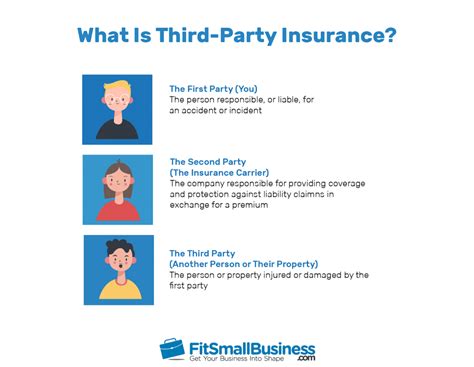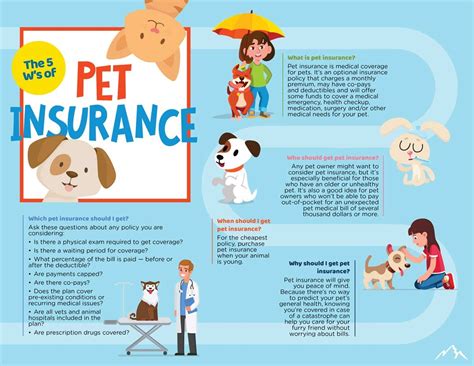Discover the benefits of critical illness insurance, types of coverage, and how to choose the right policy. Learn the claims process too.
Understanding Critical Illness Insurance
Contents
Critical Illness Insurance is a type of insurance coverage that provides a lump sum payment in the event that the policyholder is diagnosed with a serious illness. This payment can be used to cover medical expenses, replace lost income, or make necessary lifestyle adjustments. It is designed to alleviate some of the financial burden that comes with a serious illness, allowing policyholders to focus on their recovery without the added stress of financial worries.
One of the key benefits of critical illness insurance is that it can provide coverage for illnesses that may not be covered by traditional health insurance plans. This can include conditions such as cancer, heart attack, stroke, and organ failure. Having this additional coverage can provide peace of mind for individuals and their families, knowing that they will have financial support if they are ever faced with a serious illness.
There are various types of critical illness coverage available, each offering different levels of protection and benefits. Some policies may cover a specific list of critical illnesses, while others may provide coverage for a wider range of conditions. It’s important for individuals to carefully consider their own health history and family medical history when choosing the right policy, as this can impact which type of coverage would be most beneficial for their specific needs.
When it comes to filing a claim for critical illness insurance, the process typically involves providing medical documentation to support the diagnosis of a covered illness. Once the claim is approved, the policyholder will receive the lump sum payment, which can then be used as needed to address the financial impact of the illness. It’s important for individuals to understand the claims process and have a clear understanding of what is required in order to facilitate a smooth and efficient claims experience.
Benefits of Critical Illness Insurance
One of the benefits of critical illness insurance is that it provides financial protection in the event of a serious illness diagnosis. This type of insurance can help cover medical expenses, such as treatments and medications, as well as non-medical expenses, such as mortgage payments, childcare, and other daily living costs.
Another benefit is that critical illness insurance provides a lump sum payment upon diagnosis of a covered illness. This lump sum can be used to cover any expenses that arise during the illness, and can provide peace of mind during a challenging time.
Additionally, critical illness insurance can help alleviate the financial strain on family members and loved ones. Instead of worrying about how to afford treatment and care, the policyholder can focus on their health and recovery, knowing that they have financial support in place.
Furthermore, critical illness insurance can complement other insurance coverage, such as health insurance or disability insurance, by providing an extra layer of financial protection specifically for serious illnesses. This can ensure that the policyholder is comprehensively covered in the event of a health crisis.
Types of Critical Illness Coverage
When it comes to critical illness coverage, there are several types of policies to consider. Each type offers different levels of protection and benefits, so it’s important to understand the differences before making a decision.
1. Stand-Alone Critical Illness Insurance: This type of policy is specifically designed to provide coverage for critical illnesses such as cancer, heart attack, and stroke. It pays out a lump sum benefit upon diagnosis of a covered condition, which can be used to cover medical expenses, replace lost income, or for any other purpose the policyholder chooses.
2. Critical Illness Rider: Some life insurance policies offer the option to add a critical illness rider. This allows the policyholder to access a portion of the death benefit while still alive if they are diagnosed with a covered illness. It provides the dual benefit of financial protection for both the policyholder and their beneficiaries.
3. Group Critical Illness Insurance: This type of coverage is typically offered through an employer or other group organization. It provides protection for employees or members, often at a lower cost than individual policies. Group coverage may have limitations compared to standalone or rider policies, so it’s important to review the terms carefully.
| Type of Policy | Key Features |
|---|---|
| Stand-Alone Critical Illness Insurance | Lump sum benefit upon diagnosis |
| Critical Illness Rider | Access to a portion of death benefit |
| Group Critical Illness Insurance | Offered through an employer or group organization |
Choosing the Right Policy
When it comes to critical illness insurance, choosing the right policy is essential to ensure that you and your loved ones are adequately protected. With so many options available in the market, it can be overwhelming to decide on the best policy for your specific needs.
One of the first things to consider when choosing a critical illness insurance policy is the coverage amount. You’ll want to ensure that the policy provides enough coverage to help cover medical expenses, daily living expenses, and any outstanding debts in the event of a critical illness diagnosis.
It’s also important to review the list of critical illnesses covered by the policy. Different policies may include different illnesses, so it’s crucial to choose a policy that covers the illnesses that you are most at risk for. Additionally, consider the waiting period for coverage to kick in after diagnosis, as well as any exclusions that may apply.
Furthermore, it’s advisable to compare the premiums and benefits of different policies. While a lower premium may seem attractive, it’s essential to carefully review the benefits offered to ensure that the policy adequately meets your needs. Look for added benefits such as wellness programs, second medical opinion services, and additional coverage for specific conditions.
Ultimately, when choosing a critical illness insurance policy, it’s vital to carefully review the terms and conditions, coverage options, and additional benefits to ensure that you are making the right decision for you and your family’s future.
Claims Process for Critical Illness Insurance
When it comes to the claims process for critical illness insurance, it’s important to understand the steps involved in filing a claim and receiving the benefits you deserve. The first step is to notify your insurance provider as soon as you are diagnosed with a covered critical illness. This typically involves submitting a claim form along with any necessary medical documentation, such as a doctor’s diagnosis and treatment plan.
Once your claim has been submitted, the insurance company will review the documentation and may request additional information if needed. It’s essential to be thorough and accurate when providing the necessary documents to support your claim. This can help expedite the process and increase the likelihood of a successful claim.
After the review process, the insurance company will make a determination on your claim. If approved, you will receive the benefits outlined in your policy, which can provide financial assistance during a challenging time. If your claim is denied, you have the right to appeal the decision and provide additional evidence to support your claim.
It’s important to familiarize yourself with your policy’s specific claims process and requirements, as every insurance provider may have different procedures in place. Understanding the claims process for critical illness insurance can help you navigate the system and ensure you receive the support you need during a critical illness.












